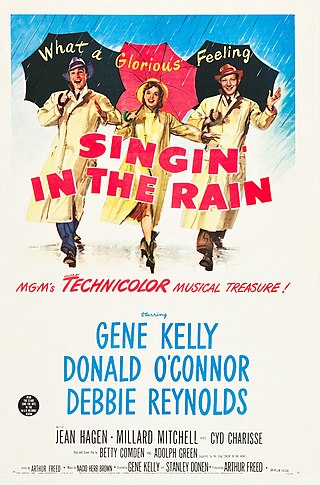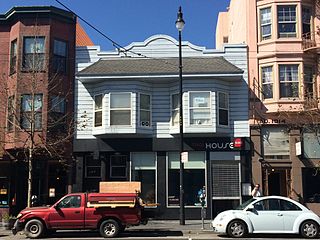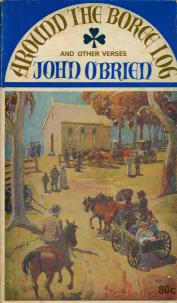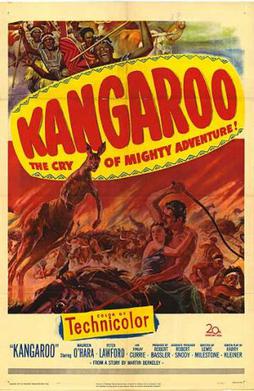Related Research Articles

Roone Pinckney Arledge Jr. was an American sports and news broadcasting executive who was president of ABC Sports from 1968 until 1986 and ABC News from 1977 until 1998, and a key part of the company's rise to competition with the two other main television networks, NBC and CBS, in the 1960s, '70s, '80s and '90s. He created many programs still airing today, such as Monday Night Football, ABC World News Tonight, Nightline and 20/20. John Heard portrayed him in the 2002 TNT movie Monday Night Mayhem.

Bryan Waller Procter was an English poet who served as a Commissioner in Lunacy.

New Radicals was an American alternative rock band formed in 1997 in Los Angeles. The band was centered on the duo of Gregg Alexander and Danielle Brisebois, and augmented by session and touring musicians.

Singin' in the Rain is a 1952 American musical romantic comedy film directed and choreographed by Gene Kelly and Stanley Donen, starring Kelly, Donald O'Connor and Debbie Reynolds, and featuring Jean Hagen, Millard Mitchell, Rita Moreno and Cyd Charisse in supporting roles. It offers a lighthearted depiction of Hollywood in the late 1920s, with the three stars portraying performers caught up in the transition from silent films to "talkies".

Harold Fraser, known professionally as Snub Pollard, was an Australian-born vaudevillian who became a silent film comedian in Hollywood, popular in the 1920s.
"Sussex by the Sea" is a song written in 1907 by William Ward-Higgs, often considered to be the unofficial county anthem of Sussex. It became well known throughout Sussex and is regularly sung at celebrations throughout the county. It can be heard during many sporting events in the county, during the Sussex bonfire celebrations and it is played by marching bands and Morris dancers across Sussex. It is the adopted song of Brighton & Hove Albion Football Club, Sussex Division Royal Naval Reserve, Sussex Association of Naval Officers and Sussex County Cricket Club.

"Tam o' Shanter" is a narrative poem written by the Scottish poet Robert Burns in 1790, while living in Dumfries. First published in 1791, at 228 lines it is one of Burns' longer poems, and employs a mixture of Scots and English.

The Deaf Club was a notable music venue located on Valencia Street in San Francisco which remained open for an 18-month period. Its main attraction was punk music. The name comes from the fact the building it was in originally began as a deaf people's clubhouse in the 1930s.

Monsignor Patrick Joseph Hartigan was an Australian Roman Catholic priest, educator, author and poet, writing under the name John O'Brien.

"The Arkansas Traveler" is an American folk song first published by Mose Case, a humorist and guitarist from New York, in 1863. The song was based on the composition "The Arkansas Traveller" by Sandford C. Faulkner and is the Arkansas official historic song.
Nationality words link to articles with information on the nation's poetry or literature.

"Stonewall Jackson's Way" is a poem penned during the American Civil War that later became a well-known patriotic song of the Confederate States and the Southern United States. It became very popular, but its authorship was unknown until almost 25 years later.
Songs of the Pixies was composed by Samuel Taylor Coleridge during 1793. The poem describes Coleridge's summer vacation and his childhood home. It also incorporates Coleridge's own view of himself as a young poet.

Kangaroo is a 1952 American Western film directed by Lewis Milestone. It was the first Technicolor film filmed on location in Australia. Milestone called it "an underrated picture."

Terrier-Stricken is a 1952 Warner Bros. Merrie Melodies cartoon short, written by Michael Maltese and directed by Chuck Jones. The cartoon was released on November 29, 1952 and stars Claude Cat.

The Grand Howl is a ceremony used by Cub Scouts and Brownies. It was devised by Robert Baden-Powell, the author of the scouting guide Scouting for Boys, and is based on the Mowgli stories in Rudyard Kipling's Jungle Book. In the ceremony, Cubs act out the wolves greeting Akela, the "Old Wolf", at the Council Rock and are reminded of the Cub Scout Promise. Baden-Powell also created a Grand Howl for Brownie Guides, which was in imitation of an owl instead of a wolf. It has been used as an opening and closing ceremony as well as a method of conveying thanks or appreciation by all sections of Scouting.
Summer Rain is a musical with book and lyrics by Australian playwright Nick Enright and music by Terence Clarke.

Maria Louise Eve as a 19th-century American author of poetry and prose. In 1866, she secured a prize of US$100 for a prose essay, and in 1879, a prize of the same amount for the best poem, expressing the gratitude of the South to the North for aid in the yellow fever epidemic. Her "Brier Rose" won the prize for the best poem offered by The Augusta Chronicle in 1889, and her poem, "The Lion and Eagle", a welcome to the England peace deputation, attracted much attention. Her writings were limited in number, but were of excellent quality. Of Eve's poems, the best known are "Conquered at Last," "Woes of Ireland," Unfulfilled," "Filling his Place," "Easter Morning," and "The Lion and the Eagle."
Marri'd and Other Verses is a poetry collection by Australian poet Mary Gilmore, published by George Robertson and Co., in 1910. It was the author's debut poetry collection.
References
- 1 2 Walsh, G. P. (1983). "Patrick Joseph Hartigan (1878–1952)". Australian Dictionary of Biography . Vol. 9. Canberra: National Centre of Biography, Australian National University. ISBN 978-0-522-84459-7. ISSN 1833-7538. OCLC 70677943 . Retrieved 20 August 2009.
- ↑ O'Brien, John (31 July 1919). "Said Hanrahan". The Catholic Press. p. 19. Retrieved 30 November 2017.
- ↑ "Australian Words: H-R". Australian National Dictionary Centre. Australian National University. Retrieved 20 August 2009.